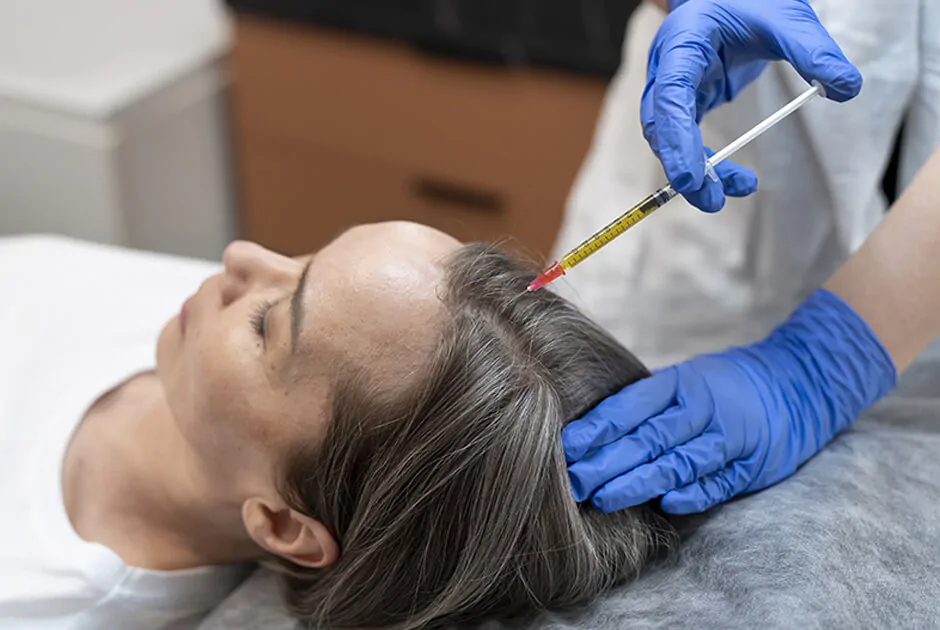Platelet-Rich Plasma (PRP) therapy has gained popularity as a non-surgical solution for hair loss, offering promising results for those seeking natural hair restoration. However, for Muslim individuals considering PRP hair treatment in Dubai, an important question arises: Is PRP halal? Understanding the religious permissibility of this procedure is essential for those who wish to align their choices with Islamic principles.
What Is PRP Therapy?
PRP therapy is a medical treatment that uses a patient’s own blood to stimulate hair growth. The process involves drawing a small amount of blood, processing it to concentrate the platelets, and then injecting the platelet-rich plasma into the scalp. Platelets contain growth factors that promote tissue repair and regeneration, making PRP an effective option for hair thinning and baldness.
Since PRP uses the patient’s own blood, it avoids foreign substances, reducing the risk of allergic reactions or complications. However, the halal status of this treatment depends on several Islamic rulings regarding medical procedures.
The Islamic Perspective on PRP Therapy
To determine whether PRP is halal, we must examine Islamic teachings on medical treatments, blood usage, and cosmetic enhancements.

Use of One’s Own Blood in Treatment
A key factor in assessing PRP’s permissibility is that it involves the patient’s own blood, not that of another person. In Islam, consuming or using another person’s blood is generally prohibited. However, scholars agree that reintroducing one’s own blood for medical purposes is permissible, as it does not involve impurity (najasah) or harm.
The Prophet Muhammad (peace be upon him) allowed medical treatments as long as they do not involve haram substances. Since PRP uses autologous (self-derived) blood, it aligns with this principle.
The Intention Behind the Treatment
Another consideration is the intention behind undergoing PRP therapy. Islam encourages maintaining good health and taking care of one’s body. If the treatment is sought to address hair loss—which can affect self-esteem and mental well-being—it is considered a valid reason. However, if the procedure is purely for vanity without medical necessity, some scholars may advise caution.
The Method of Blood Extraction and Injection
Islamic jurisprudence permits medical injections as long as they do not contain haram substances. Since PRP involves drawing blood and reinjecting it in a processed form, the method itself does not violate Islamic principles. The process is similar to other halal medical treatments, such as vaccinations or blood transfusions (when using one’s own blood).
Scholarly Opinions on PRP’s Halal Status
Several contemporary Islamic scholars and medical ethics committees have addressed PRP therapy. Their consensus is that PRP is halal because:
- It uses the patient’s own blood.
- It does not involve any haram additives.
- It serves a legitimate health or cosmetic need.
However, individuals are encouraged to consult trusted scholars for personalized rulings, especially if they have specific concerns.
PRP Hair Treatment A Viable Option for Muslims?
Dubai is a leading destination for advanced cosmetic and medical treatments, including PRP therapy. The city’s healthcare facilities adhere to high ethical standards, making it a suitable choice for Muslim patients seeking halal-compliant procedures.
Since PRP does not involve prohibited substances or unethical practices, Muslims in Dubai can confidently consider this treatment for hair restoration. However, it is always advisable to verify the clinic’s protocols to ensure no non-halal additives are used during the process.
Potential Concerns and Misconceptions
Some individuals may question whether PRP is halal due to general misconceptions about blood usage in Islam. However, as previously explained, the treatment’s reliance on autologous blood removes major religious concerns.
Another concern is whether PRP falls under the category of "changing Allah’s creation," which is discouraged in Islam. However, scholars differentiate between altering the body unnecessarily (such as extreme cosmetic surgery) and treatments that restore natural functions. Since PRP helps revive hair growth rather than artificially modifying appearance, it is generally deemed acceptable.
Conclusion:
After examining Islamic teachings and scholarly opinions, PRP therapy is considered halal for Muslims, provided it uses the patient’s own blood and is performed for legitimate health or cosmetic reasons. PRP Hair Treatment adheres to these principles, making it a viable option for those seeking hair restoration while maintaining religious compliance.






Comments